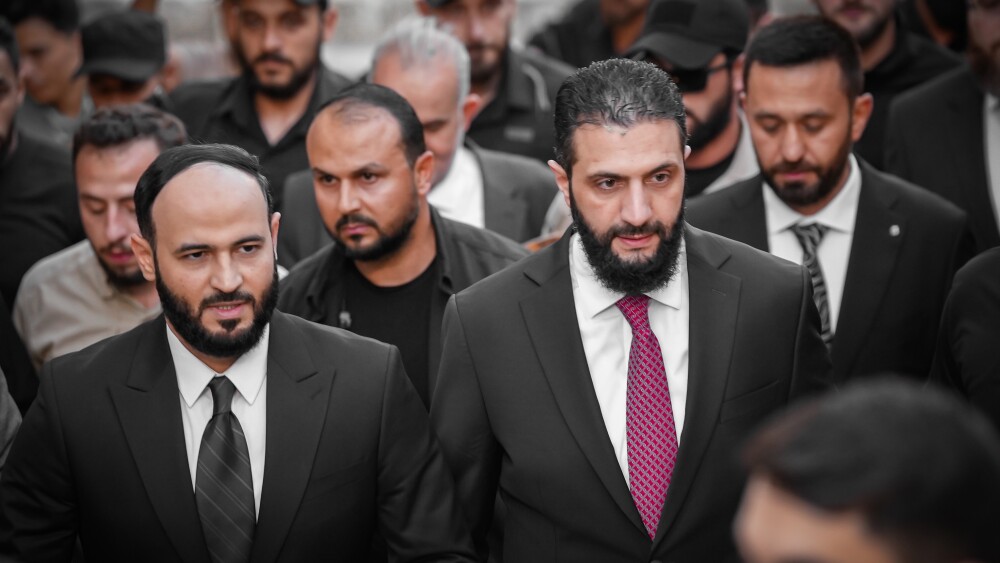Syria long has been subordinate to its patrons, but under the leadership of its Islamist president, Ahmed al-Sharaa, the country increasingly finds itself as a dysfunctional entity caught between regional powers. Yet the interim president continues to project an image of full sovereignty. In reality, his regime’s claims ring hollow. For one, his fragmented military has no control over vast territories of the country. Even the armed forces ostensibly under government control repeatedly demonstrate rogue and militia-like behavior, as they did against the Alawites and Druze, and continue to do elsewhere.
Al-Sharaa wields the sovereignty card only when it is politically convenient. Following calls by the Druze community for Israeli protection after the mid-July massacres carried out by al-Sharaa’s forces and allied militias in southern Syria, the Syrian president dismissed the appeals and claimed they would not serve the interests of the Syrian people. His domestic allies went even further, denouncing them as an act of high treason.
Al-Sharaa wields the sovereignty card only when it is politically convenient.
Al-Sharaa frequently condemns Israeli military operations in southern Syria as a violation of the county’s sovereignty. Under normal circumstances, such denunciations would seem sincere and legitimate. But his contradictory rhetoric and actions elsewhere make them disingenuous.
In an interview with Turkey’s Milliyet newspaper on September 19, 2025, the Syrian leader hinted at a possible Turkish military operation against the Kurdish-led Syrian Democratic Forces should they fail to fully integrate into the Syrian military by December, in accordance with a March agreement signed between the Syrian Democratic Forces and Damascus.
Instead of rejecting Turkish interference in what is clearly an internal Syrian matter, al-Sharaa threatens the Syrian Kurds with a Turkish military invasion. A de facto president who invites foreign intervention against his own population forfeits any moral ground to speak of his country’s territorial sovereignty.
When the actor is Turkey, the Syrian government frames it as a national security matter for Ankara. It only becomes a violation of sovereignty when Israel is involved. This double-standard is not only hypocritical but also futile. The Bashar al-Assad regime employed the same approach for years, but it ended with Assad fleeing into exile in Moscow.
Turkey occupies large swaths of northern Syria, primarily Kurdish regions. Al-Sharaa should demand a full Turkish military withdrawal from these areas, rather than doubling down on efforts that legitimize further Turkish occupation of Syrian territory.
Turkey occupies large swaths of northern Syria, primarily Kurdish regions.
The interim authorities must acknowledge that they are incapable of resolving the country’s many complex challenges—particularly those involving ethnic and religious communities—on their own. Only then can there be constructive foreign involvement with local buy-in and clear constraints. For example, the United States and Jordan recently engaged in developing a plan to address the Druze situation in southern Syria. Damascus should pursue a similar approach toward the Kurds rather than encouraging Turkish military action against them.
Al-Sharaa is set to attend the United Nations General Assembly, a first such appearance for a Syrian president since President Nureddin al-Atassi took the podium in 1967. Al Sharaa should use this global stage as an opportunity to demonstrate commitment to pluralism, inclusive governance and power-sharing in Syria, even though his actions on the ground tell a different story. Without initiating a genuine transition—one that involves all components of Syria’s society—al-Sharaa’s calls to protect sovereignty will carry little weight either domestically or abroad.








